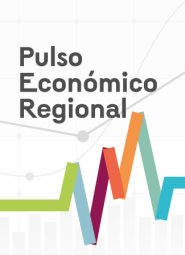The Board of Directors of Banco de la República (BDBR) adopted additional measures regarding liquidity, and unanimously cut the benchmark interest rate half a percentage point to 3.75%.
[Video] Press Conference with the Governor of the Central Bank of Colombia
Juan José Echavarría, Governor, and Hernando Vargas, Deputy Technical Governor, answer questions from analysts and journalists related to the decision reached today by the Board of Directors.
[Press Release]
The country and its economy are experiencing an extraordinary and unprecedented situation. The BDBR has prioritized ample and timely provision of liquidity both in pesos and in US dollars, as the situation demands.
In its meeting today, the Board deliberated on the monetary policy stance and made the following decisions:
-
Complementing the measures adopted so far with the goal of facilitating payments in the economy and the normal operation of private and public debt markets in the current extraordinary situation, the BDBR authorized:
- Access to severance funds managers to auctions for the purchase of private debt instruments and to repo auctions with private debt instruments.
- Access to the Fondo Nacional del Ahorro to repo auctions with public and private debt instruments.
- The call for new auctions of dollar futures by USD $1,000 million and swaps by USD $400 million.
- Consistent with the priority measures taken to increase liquidity and ensure the proper operation of financial markets, the Board deemed appropriate to reduce the benchmark interest rate by half a percentage point to 3.75% in order to contribute to the future recovery in domestic demand once the operation of the markets is normalized. The Board considers that the reduction in the interest rate will also contribute to alleviate the financial burden on households and businesses in the current situation.
The BDBR will continue to permanently monitor the situation and will make all the decisions necessary in its competence to contribute to the proper operation of the economy.































































